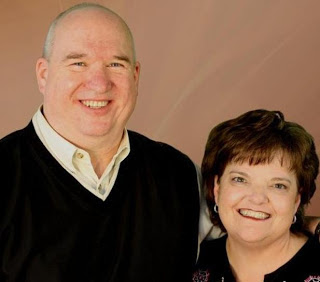When my son was a pre-teen, he had become very adept at
lying. He was a skilled deceiver, to the point of believing his own stories!
He’d memorized Scripture and desired to change, and yet it continued to pop up
in his life.
One night, as he and I sat in his bedroom feeling
frustrated and defeated over his lack of progress in this area, I sensed that
God had given me an answer. I can’t wait to share it with you here.
Practice these 5 power faith-building exercises to build
the muscles of maturity and transformation.
Desire, effort and “trying harder” will not be enough to
resist when we’re up against our biggest challenges. Like an attempt to press a
too-heavy weight, we can’t successfully lift more than our muscles have been
trained to handle (yet!).
Thankfully, we have everything we need to live a
Christlike life. Christ lives within us by His Holy Spirit and has given us His
Word, His promises, and His people.
In order for our beliefs and behavior to
align more as we grow to maturity, we must go into intentional spiritual
training to grow our spiritual muscles.
Exercise
#1: Speak the truth in love.
Many Christians have developed seemingly harmless
patterns of dishonesty that become the roots of denial, rationalization,
compromise, and self-delusion. Undergoing training in this area involves the
elimination of “white” lies, exaggerations, and partial truths.
One of the greatest helps for me has been practicing
confession. When I find that I’ve over exaggerated or misrepresented myself, I
stop and confess and the receiver for forgiveness.
The practice of confession has been my
training apparatus to build muscles of honesty.
Exercise
#2: Be angry, and yet do not sin.
Since God expresses anger, we know it’s not inherently
evil. But what we do with our anger can be. Most families have developed the
habit of either attacking or not saying anything. Neither approach works.
I’ll never forget the first time my wife used an “I feel”
message. I’d come home late after not calling to notify her, which was not the
first occurrence of its kind. But this time, when she quietly explained how it
made her feel, I could set aside my defenses and hear her.
“I feel” messages have been my training
apparatus to build muscles of emotional control.
Exercise
#3: Steal no longer.
The shortcut mentality to work, as well as the
work-yourself-to-death mentality, are both enemies to our transformation.
In Ephesians chapter 4, Paul tells us to go into
training in the area of diligence. To develop this skill, he implores us
to not take shortcuts — at work, at home, in life. Instead, we can create
sacred moments when we treat every moment of every day as an opportunity to
turn the daily grind of work into personal worship. Isn’t that the kind of
Christian you want to become?
Creating a to-be list has been my training
apparatus to build muscles of stewardship.
Exercise
#4: Say only what helps.
Words carry the power of life and death.
If you really want to take your spiritual temperature,
don’t look at your religious activities, your giving, or your morals. Listen to
your words. According to Jesus, that’s the clearest indication of where your
heart is.
One of the best ways we can train ourselves in positive
speech is to learn to practice silence and solitude. Sometimes we just need to
talk less (that goes for our fingertips, too).
The practice of silence and solitude has been
my training apparatus to build muscles of positive speech.
Exercise
#5: Be kind to one another, compassionate, forgiving each other, just as God in
Christ also has forgiven you.
As believers we treat people as we would like to be
treated ourselves and love them with gut-level compassion. While the world
returns offense for offense and hurt for hurt, we break the cycle by treating
people as Jesus would treat them.
I want God to forgive me when I’m the offender rather
than the offended, so I need to forgive as I want to be forgiven.
The
key to building this muscle has been following the principle found in Matthew:
“Therefore, if you are offering your gift at
the altar and there remember that your brother or sister has something against
you, leave your gift there in front of the altar. First go and be reconciled to
them; then come and offer your gift.” Matthew 5:23-24
Following the principle of putting my worship
on hold until I seek reconciliation has been my training apparatus to build the
muscle of forgiveness.
NEVER TOO LATE TO START “WORKING OUT”
The power to change is in us from the first day of our
relationship with Jesus to our last day on earth. It’s available in full as
soon as we believe in Him and begin our walk with Him, but learning to rely on
that power and following God’s training program can be a long process.
No matter how many times you’ve started and stopped, no
matter how long your frustrations have lasted, you are not too late.
Make it a priority to practice these faith-building
exercises and notice the transformation taking place in your heart and in your
life.
The miracle of life-change is waiting for you.
Source: By Chip Ingram






























